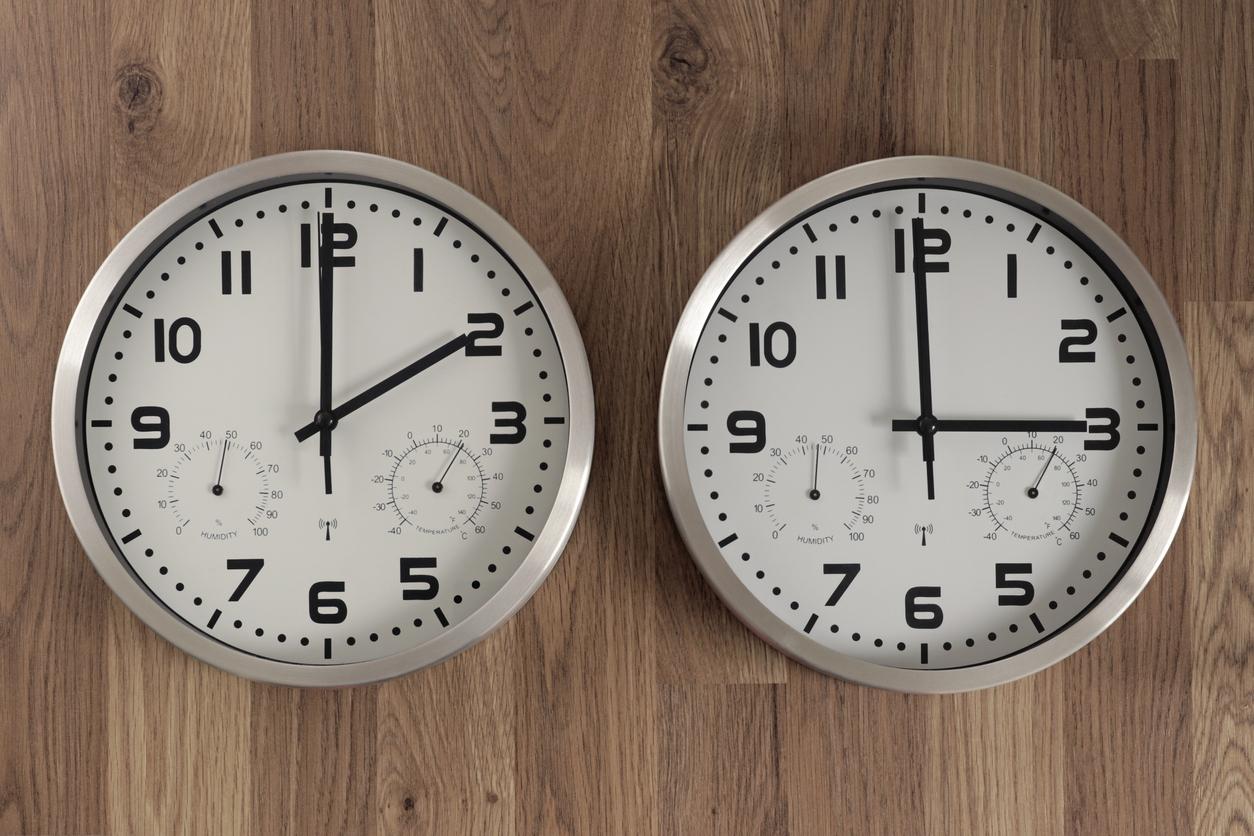How to smoothly manage the transition to winter time which occurs this weekend? Wise advice from a chronobiologist to prevent your sleep from suffering.

- Circadian rhythms are the approximately 24-hour biological cycles that regulate various aspects of our physiology, including sleep and wakefulness. The time change in winter only slightly disrupts this biological clock.
- Our circadian rhythms have a period of 24.3 hours and tend to delay by 10 to 20 minutes per 24 hour cycle. With the change to winter time, our clock will be delayed, which is more in line with its natural programming.
- 71% of French people say they have poor quality sleep, suffering from an average lack of rest of 60 minutes, according to the 2022 barometer from the National Institute of Sleep and Vigilance.
Sixty minutes more sleep! The changeover to winter time will take place during the night of Saturday to Sunday October 29: at 3 a.m., it will then be 2 a.m. How to properly prepare for this time change? Chronobiologist Benoît Mauvieux, lecturer in STAPS at the University of Caen Normandy, reminds us of the rules to respect.
Transition to winter time: anticipate the change
A few days before the fateful date, it is recommended to adjust our clock and our schedule to gradually accustom our body to winter time. This will ease the transition by reducing disruption to our circadian system. Let’s reassure ourselves: “The change to winter time is much better accepted by our organization than the change to summer time, underlines Benoît Mauvieux, because we will get up an hour later and our biological clock will have to be delayed by an hour […] which corresponds more naturally to [sa] programming.” And let’s not forget: “It’s the time you wake up that influences the time you go to bed, not the other way around.”
Take advantage of natural light
As this becomes scarcer during the winter months, it is crucial to make the most of natural light. The best thing is to get your nose outside “during daylight hours to help your body clock adapt to this time change.” Knowing that, according to various studies, it is in the early morning that the sun’s rays are most beneficial, because they promote the production of a hormone in the evening, melatonin, which helps you fall asleep. HAS Conversely, it is better to avoid exposing yourself to too much light at the end of the day, as this would delay falling asleep.
Winter time: maintaining your sleep routine
If it is experienced badly by some (particularly so-called “morning people”), reminds himINSERM), this change to winter time does not directly disrupt our sleep. “We get up an hour later, but we go to bed an hour later, the duration of wakefulness and the homeostatic pressure are the same”, explains the chronobiologist. That said, time change or not, it is important to go to bed and wake up at regular times every day: this sleep routine can considerably improve its quality and avoid feeling tired during the day.
And if you were planning to catch up on your week’s debt by sleeping in on the weekend, know that it’s quite simply… counterproductive.

Winter time: avoid overstimulation before bed
To avoid this transition to winter time, it is essential to prepare your body for bed and ensure a smooth transition between waking and sleeping. You will have understood: no more screens and their blue light until the middle of the night, coffee in the late afternoon, overly indulgent naps, or even physical activity after 8 p.m. For the sleep of the just, according to Benoît Mauvieux, it is rather appropriate to “choose relaxing activities to help you fall asleep more easily, such as reading”. And, for those who still struggle to find Morpheus, there are some foolproof falling asleep techniques.















